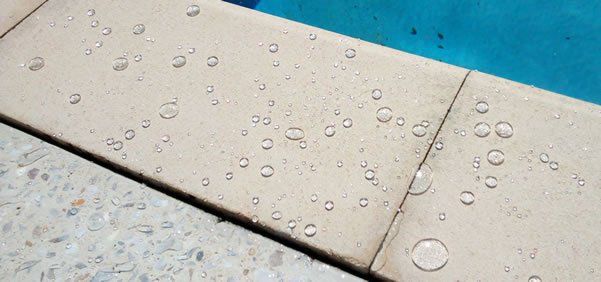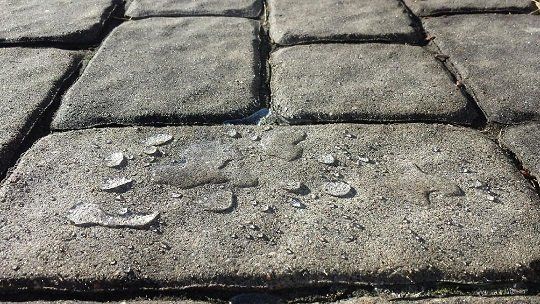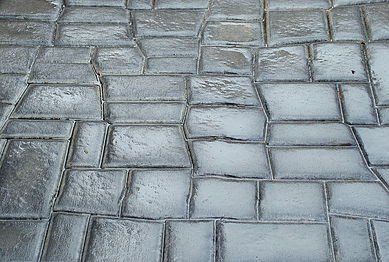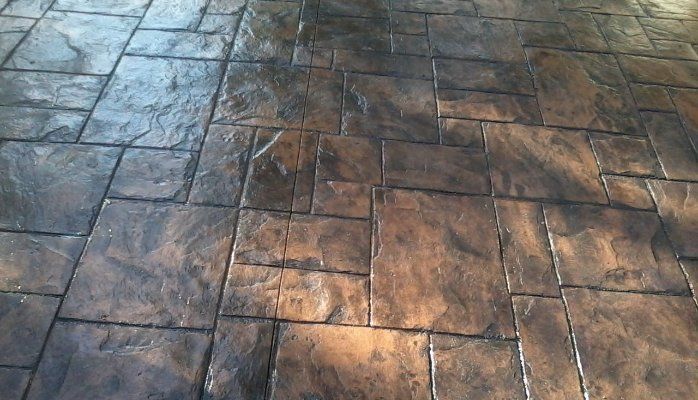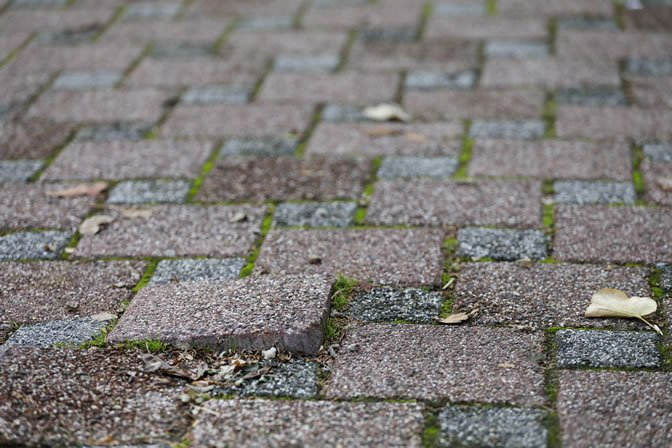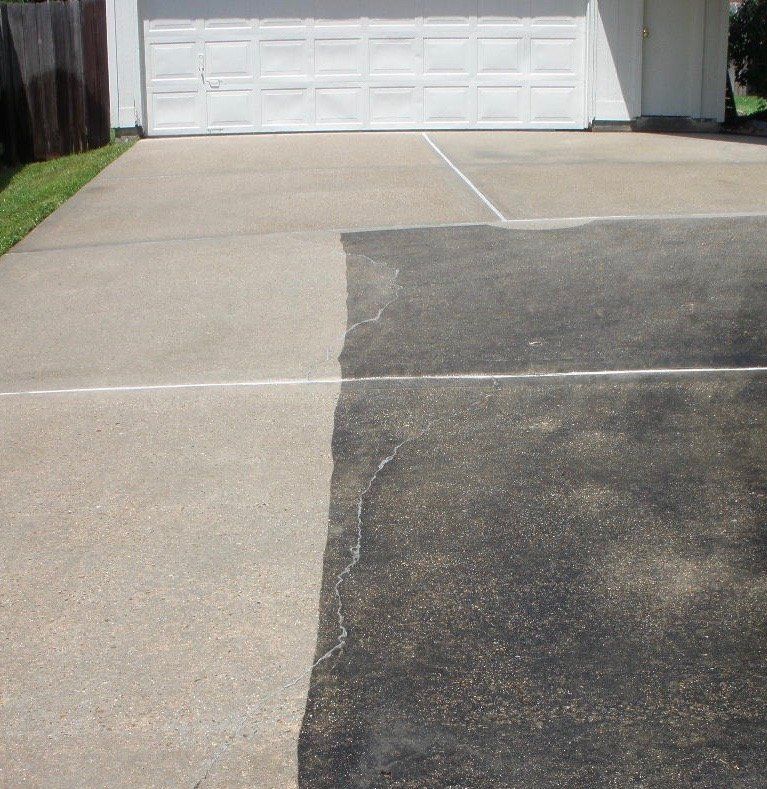
Adelaide 08 8180 0693 | Melbourne 03 8692 0036
TOLL FREE 1300-302-101
EMAIL info@jetclean.com.au
Choosing A Sealer That's Right For You
Film Forming Sealers vs. Penetrating Water Repellants
Choosing the right sealer seems simple enough… just ask which one is the best… right? That's the question every supplier hates to hear, because "best" is a relative term and there's no one product that is best for all people and all applications. In order to make a product recommendation, there are a few questions to ask:
What type of stone or concrete finish do you have? Concrete many different finishes; broom finished, smooth troweled, stamped, stenciled, sprayed, polished and exposed aggregate. Concrete pavers are also widely used and may people prefer to seal them. Stone pavers and tiles also come in different finishes: polished, honed, saw cut, etc...... Each of those finish types has unique considerations when choosing a sealer:
It really depends upon your personal preference and what your expectations are for cosmetic appearance.
Film forming sealers come in two varieties; water-based and solvent-based. Both have different performance and aesthetic qualities:
Water-Based Sealers
- Low Gloss
- Minimal darkening of concrete
- Increased Chemical Resistance
Solvent-Based Sealers
- High Gloss
- Darkens concrete
- Increased color development
On the other hand, penetrating water repellants will protect your concrete from water intrusion, deicing chemicals and freeze/thaw damage, but leave the appearance unchanged and provide little to no protection from staining.
Film forming sealers are often recommended for:
- Pattern Pave
- Stamped concrete
- Exposed aggregate
- Spray on paving
- Stencil paving
- Decorative concrete
- Concrete
- Concrete pavers
- Some slate
Penetrating water repellants are often recommended for:
- Smooth Troweled Concrete
- Broom finished concrete
- Natural or man made stone pavers and tiles
- Concrete pavers
Your Environment Impacts On Sealer Choice
Is your concrete around a pool deck which might favour a penetrating sealer, simply because it is safer? Or surrounded by large trees, under the table and grill and in need of stain protection provided by film forming sealers? Always consider what elements and contaminants your concrete will be exposed to. Tree sap, oils, coolants, fertiliser, food and beverage spills and even lawn fertiliser can all stain unsealed concrete and stone.
Film forming sealers are often recommended for:
- General stain protection
- Prevention of oil and coolant penetration
- Chemical protection - including many alkaline and acidic spills
Penetrating water repellants are often recommended for:
- Areas where excessive moisture may be present in ground (salt damp around home or pavers is an indicator)
- General stain protection without making surfaces slippery (ie around pool areas or sloped surfaces)
- Prevention of oil and coolant penetration
- Very modest chemical protection - alkaline and acidic liquids can damage sealers
Appearance
There are many elements that impact appearance, including darkening of concrete, color development of colored concrete, gloss level, penetration, etc. In each case, solvent-based film forming sealers will do so more than water-based versions, while penetrating water-repellants will generally not change the cosmetic appearance at all.
Film forming sealers are often recommended for:
- Pattern Pave
- Stamped concrete
- Exposed aggregate
- Spray on paving
- Stencil paving
- Decorative concrete
- Concrete
- Some pavers
- Some slate
Penetrating water repellants are often recommended for:
- Concrete
- Exposed aggregate
- Stone and concrete pavers
- Some tiles
Color Enhancement
Some versions of stained or coloured concrete may look dull and dusty prior to application of the right sealer. At other times it's preferable to maintain the original appearance of a substrate.
Solvent-based film forming sealers enhance colour development.
Penetrating liquid repellant sealers are often used when the owner prefers to maintain the original substrate appearance. These sealers retain a natural finish and NO CHANGE IN APPEARANCE and hence are often recommended for:
- Concrete
- Natural or man made stone
- Some pavers
- Some tiles
Solvent-based film forming sealers can darken the appearance of concrete, enhance colour development, develop a high gloss "wet look" appearance, and wet out antiquing release agents. As a result, film forming sealers are often recommended for:Stamped concrete
- Pattern Pave
- Stamped concrete
- Exposed aggregate
- Spray on paving
- Stencil paving
- Decorative concrete
- Concrete
- Some pavers
- Some slate
Having some expectations about what you want your exterior floors to look like and what you want to protect it from will better enable you to choose a sealer you'll be happy with today and for years to come.
